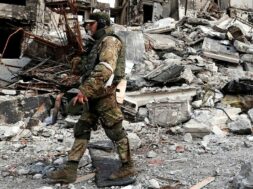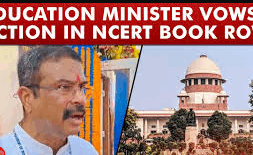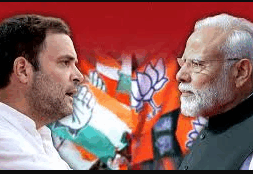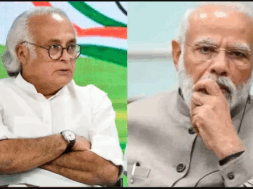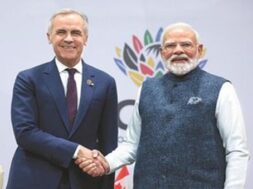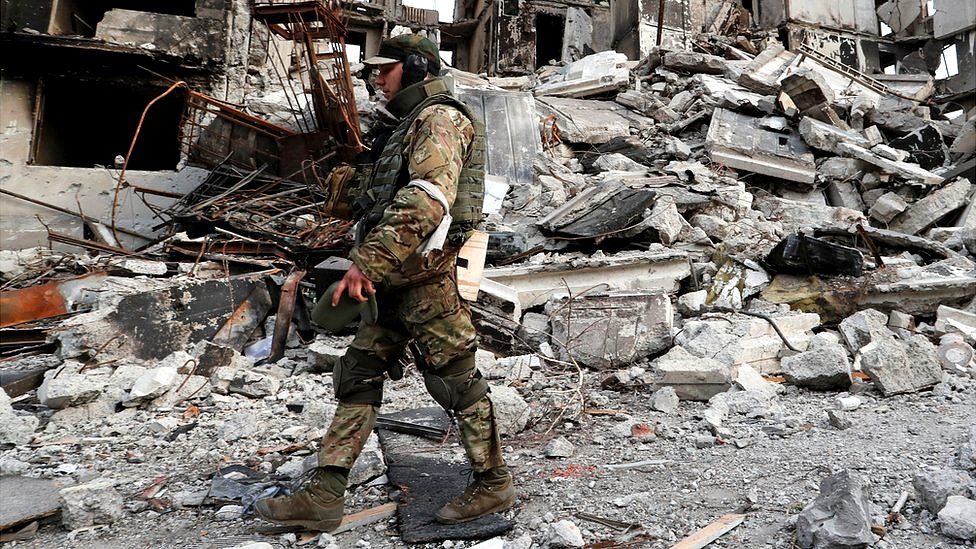
Russia Maintains Military Pressure on Ukraine despite Peace Talks as US Warns India against becoming too Chummy with Russia
Manas Dasgupta
NEW DELHI, March 31: Even as the United States warned India against going too close to Russia at the cost of its relations with Washington, the peace talks continued between Russia and Ukraine in Turkey with Russia maintained its military pressure on the besieged country al beit on a lower scale.
NATO, however, did not see any truth in Russia’s assurance of “radically reducing” its military activity in Ukraine while the British and the US intelligence claimed that the Russian president Vladimir Putin was “misled” by his advisers in launching the “massively misjudged” Ukraine operation. “NATO is not seeing a pull-back of Russian forces in Ukraine and expects “additional offensive actions,” the alliance’s chief Jens Stoltenberg said on Thursday.
“According to our intelligence, Russian units are not withdrawing but repositioning. Russia is trying to regroup, resupply and reinforce its offensive in the Donbas region” in eastern Ukraine, Stoltenberg told a media conference. “At the same time, Russia maintains pressure on Kyiv and other cities. So, we can expect additional offensive actions, bringing even more suffering.”
The NATO assessment contradicted a pledge by Russian negotiators, made after talks in Turkey this week, to “radically” reduce Moscow’s military activity in northern Ukraine, including near the capital Kyiv. “We have heard the recent statements that Russia will scale down military operations around Kyiv and in northern Ukraine. But Russia has repeatedly lied about its intentions. So we can only judge Russia on its actions, not on its words,” Stoltenberg said. “It is obvious that we have seen little willingness from the Russian side to find a political solution,” he said.
“We see continued shelling of cities and we see that Russia is re-positioning some of the troops, moving some of them around, most likely to reinforce their efforts in the Donbas region.” Stoltenberg added: “There is a close link between what is going on the battlefield and what is going on around the negotiating table, and they do allow us to provide support Ukraine, to also strengthen their position at the negotiating table.”
Ukraine said on Thursday it was sending dozens of buses to evacuate civilians from the besieged city of Mariupol after a Russian ceasefire announcement, but dismissed Kremlin promises to scale back attacks on the capital saying forces were simply regrouping to target the east. Tens of thousands of civilians are trapped in besieged Mariupol with little food, water or medicine, and previous attempts to agree a humanitarian corridor have failed, despite international pressure.
But on Thursday, Ukraine’s Deputy Prime Minister Iryna Vereshchuk said buses were heading to the city, where Russia said it would observe a ceasefire from 10:00 am (0700 GMT). “Tonight, we were informed by the International Committee of the Red Cross that Russia is ready to open access” to a humanitarian corridor from Mariupol to Zaporizhzhia via the Russian-controlled port of Berdiansk, she said in video posted on Telegram.
On the eve of the Russian foreign minister Sergie Lavrov visiting New Delhi later this week, the US send a waning message to India against continuing its trade practices with Russia though buying of oil and gas from Russia at a discounted price did not violate the US sanctions against Moscow as penalty for invading Ukraine. “Now is the time to stand on the right side of history, and to stand with the United States and dozens of other countries, standing up for freedom, democracy and sovereignty with the Ukrainian people, and not funding and fuelling and aiding President Putin’s war,” Commerce Secretary Gina Raimondo told reporters in Washington on Wednesday. She called reports of the arrangement “deeply disappointing,” while adding that she hadn’t seen details.
The US deputy national secretary Daleep Singh went a step ahead reminding India that Russia and China had forged “no limits partnership” and India need not expect Russia to come to its aid in case China again violated its Line of Actual Control with India. His message clearly underlined the “inevitable” that India would have to turn to the US for help against China despite its all strategic relationship with Russia as the Ukraine war has helped establish a closer link between Russia and China.
India has pushed back against U.S. concerns by noting that it needs Russian arms to counter China, particularly after border clashes in 2020, and alternatives are too expensive. The strategic relationship between India and Russia dates back to the Cold War and remains robust, even as Modi has shifted the country more toward the U.S. orbit in recent years. Ukraine has also reminded India about the assistance it had provided in defence armaments and expected India to stand with it and against Russia in the present crisis situation.
As the Russian invasion of Ukraine continues in its fifth week, British intelligence says advisors to Russia’s President Vladimir Putin fear telling him the truth about his “failing” and “massively misjudged” invasion of Ukraine. Russia’s defence ministry announced a local ceasefire Thursday to allow civilians to be evacuated from Ukraine’s besieged port city of Mariupol.
A senior Ukrainian official said Russia and Ukraine would resume their peace talks online on Friday. The Kremlin had played down hopes of a breakthrough following Tuesday’s peace talks in Istanbul, saying there was nothing “too promising” from the discussions.
The Kremlin on Thursday also denied U.S. and British claims that Putin’s advisers are scared of giving him a true picture of Moscow’s military operation in Ukraine. “This shows that neither the Department of State nor the Pentagon have real information about what is happening in the Kremlin,” Putin’s spokesman Dmitry Peskov told journalists. “They don’t understand President Putin, they don’t understand the mechanism for taking decisions and they don’t understand the style of our work,” he added.
Britain’s GCHQ spy agency chief, Jeremy Fleming, said Thursday that “Putin’s advisers are afraid to tell him the truth” about the Russian military’s progress and the degree of Ukrainian resistance. The White House earlier gave a briefing on declassified intelligence which found that Putin’s relations with his staff had deteriorated. White House communications director Kate Bedingfield said Putin “felt misled by the Russian military.” Peskov said “it was not just a pity” that such claims were made, but “it causes concern, because such complete non-understanding is what leads to mistaken decisions, to hasty decisions that have very bad consequences.”
A Red Cross warehouse in the besieged Ukrainian port city of Mariupol has been struck amid intense Russian shelling of the area. Satellite pictures on Thursday show clear damage to the warehouse’s roof along the Kalmius River near its mouth on the Sea of Azov. A red cross had been painted on the top of the warehouse. At least one hole from suspected shelling could be seen in an image taken March 21. Some four holes in the roof were clearly visible in images taken Wednesday. The Red Cross had been on the warehouse’s roof from at least late August 2021, according to satellite images.
The head of Ukraine’s state nuclear company urged the U.N. nuclear watchdog on Thursday to help ensure Russian nuclear officials do not interfere in the operation of nuclear power plants occupied by Russian forces. Since invading Ukraine on Feb. 24, Russian troops have occupied Europe’s largest nuclear power plant at Zaporizhzhia and the now defunct plant at Chernobyl, scene of the world’s worst nuclear accident in 1986.
Energoatom CEO Petro Kotin said earlier this month that Russia’s state nuclear company Rosatom had sent officials to the Zaporizhzhia plant to try to take control of it. Rosatom said a “limited number” of its officials were there but denied they had taken operational control. Calling on the International Atomic Energy Agency (IAEA) to prevent what Ukraine regards as interference by Russian nuclear officials, Kotin said: “(The IAEA) can influence this and they must influence this, and this question will be discussed.”
Besides the U.S., Australia also criticized India for considering a Russian proposal that would undermine sanctions imposed by America and its allies, showing a deepening rift between the emerging security partners as Foreign Minister Sergei Lavrov travelled to Delhi for talks. Dan Tehan, Australia’s trade minister who also spoke at the briefing, said it was important for democracies to work together “to keep the rules-based approach that we’ve had since the Second World War.”
The comments reflect growing unease with India among fellow members of the Quad, a group of democracies seeking to counter China’s assertiveness in the Asia-Pacific region that also includes the U.S., Australia and Japan. India is the world’s largest buyer of Russian weapons, and has also sought to buy cheap oil as fuel prices surge.
